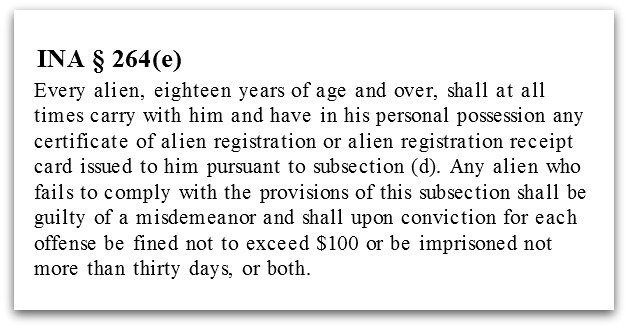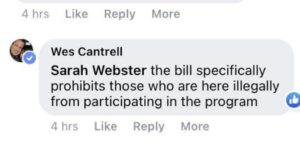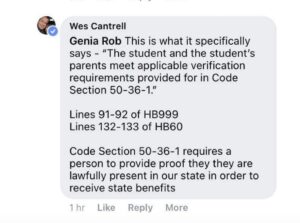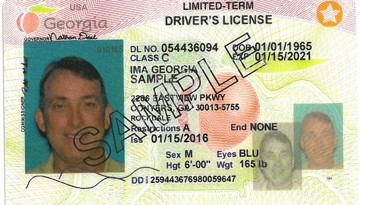Jennifer Lee should correct her agenda-driven inaccuracy
Now that yet another instate tuition for illegal aliens bill (HB 120) has been stopped in Georgia, when will the GBPI board post a correction and apologize to trusting state legislators for fake “facts” ?
FACT: “Illegal aliens who have been awarded deferred action on deportation proceedings through the DACA amnesty by both the Obama and Trump administrations are illegal aliens and do not have “lawful presence” says the 11th Circuit Court of Appeals. The decision was handed down March 6, 2019.”
Fast Fact: Appellate Court: Not lawfully present, illegal aliens with DACA are illegal aliens – Georgia issuing public benefits based on disputed status, D.A. King, on ImmigrationPoliticsGA.com, March 8, 2019
FICTION: “Estrada is one of about 21,600 undocumented young people who participate in the Deferred Action for Childhood Arrivals (DACA) program in Georgia. Through DACA, she is lawfully present in the U.S., but Georgia policy requires she pay out-of-state tuition rates three times higher than in-state tuition.”
“Extending In-state Tuition to Dreamers Creates Opportunity for Georgia” – Jennifer Lee, Senior Policy Analyst for Higher Education, Georgia Budget and Policy Institute, April 23, 2019











 Image: A.F. Branco – In 2016 three Georgia residents, all illegal aliens who had graduated from Georgia high schools, went to court with the contention that their deferred action on deportation status as DACA recipients somehow provided “lawful presence” in the U.S. Further, they said DACA should allow them to attend the universities the Board of Regents has placed off limits to illegal aliens.
Image: A.F. Branco – In 2016 three Georgia residents, all illegal aliens who had graduated from Georgia high schools, went to court with the contention that their deferred action on deportation status as DACA recipients somehow provided “lawful presence” in the U.S. Further, they said DACA should allow them to attend the universities the Board of Regents has placed off limits to illegal aliens.










